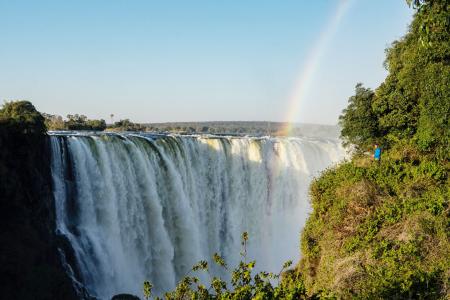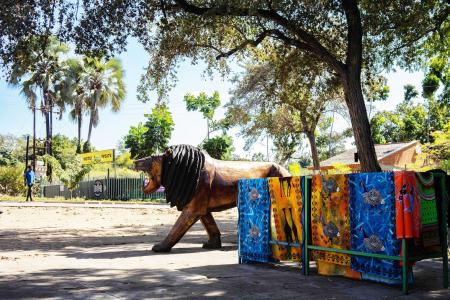Africa seeks tourism boom
Eco-tourism, cultural experiences can unlock the continent's potential, improve economy
Africa draws just 5 per cent of the world's tourists despite boasting attractions ranging from the Pyramids and Victoria Falls to wildlife safaris and strips of pristine beach.
The continent's huge potential can be unlocked by eco-tourism, cultural experiences, domestic travel and political stability, said experts at an African tourism conference hosted by Airbnb in Cape Town last week.
"When you look at the success stories, it's those who've embraced trends," said the African Travel Association's managing director Naledi Khabo, who spoke at the summit.
"When you look at some countries which have made sustainability a focal point, like Tanzania or Rwanda, they're very attractive for certain travellers."
Eco-friendly safaris and carbon-neutral lodging draw increasing numbers of tourists from Europe and North America.
The number of tourists visiting Tanzania has more than doubled since 2006 to above one million, contributing 14 per cent of the country's gross domestic product, according to Tanzania Invest.
Ms Khabo said other success stories included South Africa, "which is promoting the diversification of their products beyond the safari".
South Africa has witnessed a boom of experience-based tours, taking travellers to disadvantaged township and rural communities as well as wine farms and game lodges.
Ms Abigail Mbalo founded the 4Roomed eKasi Culture, a concept based on the four roomed homes found in the oldest townships of South Africa to showcase its black communities' food and lifestyles.
"We tapped into the development of tourism in rural and township spaces," she said.
"We are now starting to see cultural inclusivity. Those areas have been untapped."
Tourism is a major employer of poor black South Africans and accounts for nearly 700,000 jobs in a country with an unemployment rate of almost 27 per cent.
The World Bank, which spoke at the tourism summit, praised the emerging trend for community-based travel projects like Ms Mbalo's for creating opportunities for women and young people.
"Every new business, destination, route or visitor creates opportunity for local people," said the World Bank in a statement.
But many countries on the continent have struggled to woo foreign visitors fearful of political instability and violence.
"The biggest challenge is perception," said Ms Khabo. "Sometimes there is a real threat and sometimes it's just perceived."
Rwanda is one country that has successfully transformed its global image. The east African nation was torn apart by a genocide in 1994 but has since established itself as a high-end destination.
"Tourism is the number one foreign exchange earner, which is amazing to see in a country like Rwanda," said Ms Rosette Rugamba, who was appointed by Rwandan President Paul Kagame as head of Rwanda Tourism from 2003 to 2010.
"It is a huge contributor to the image-building of our country."
Zimbabwe has enjoyed a boost in visitor numbers since long-serving despot Robert Mugabe resigned in November last year.
While the number of foreign visitors to Victoria Falls jumped nearly 50 per cent in the first quarter of this year, the country still operates far below its tourist potential.
"The onus is on African governments and tourism boards to be more proactive in addressing perceptions," added Ms Khabo.
One African country that has seen its tourism industry squeezed is Egypt, once a magnet for travellers that has since the 2011 revolt seen visitor numbers plummet, despite the draw of the Pyramids and Red Sea.
Another is the Democratic Republic of the Congo (DRC), which for years has been rife with often deadly political and ethnic unrest.
"There is an enormous amount the DRC has to offer", including gorillas, pristine national parks and smouldering volcanoes, said tourism author Anita Mendiratta, who spoke at the conference.
"That is limited now because of the safety and security." - AFP
Get The New Paper on your phone with the free TNP app. Download from the Apple App Store or Google Play Store now





